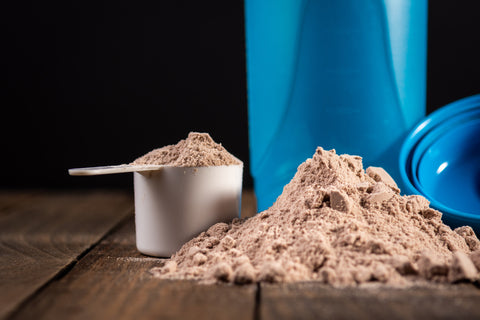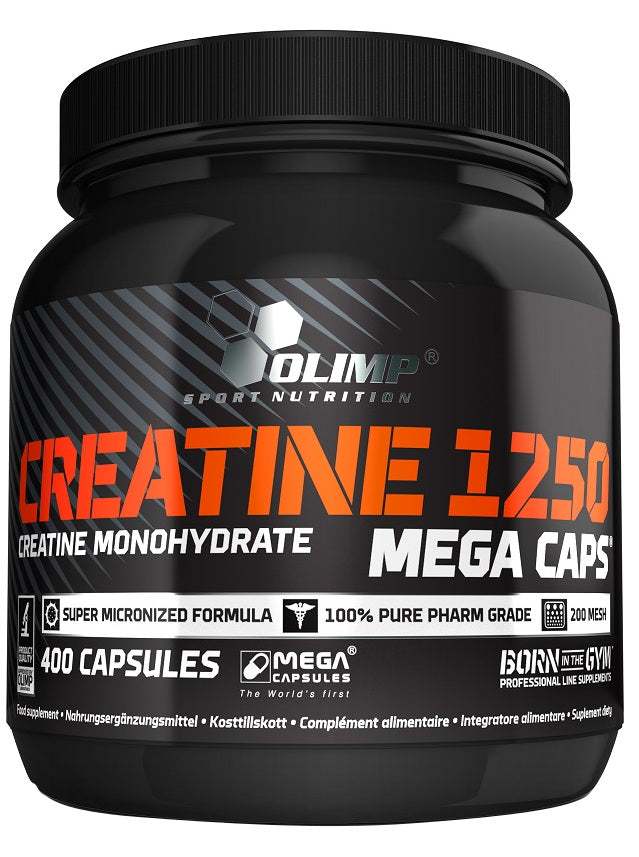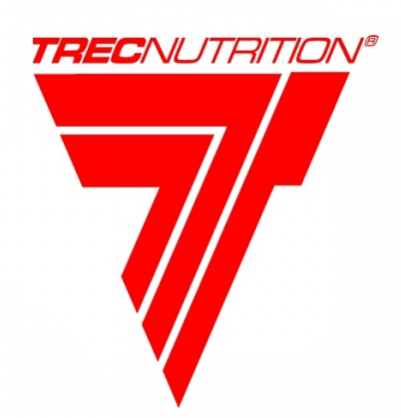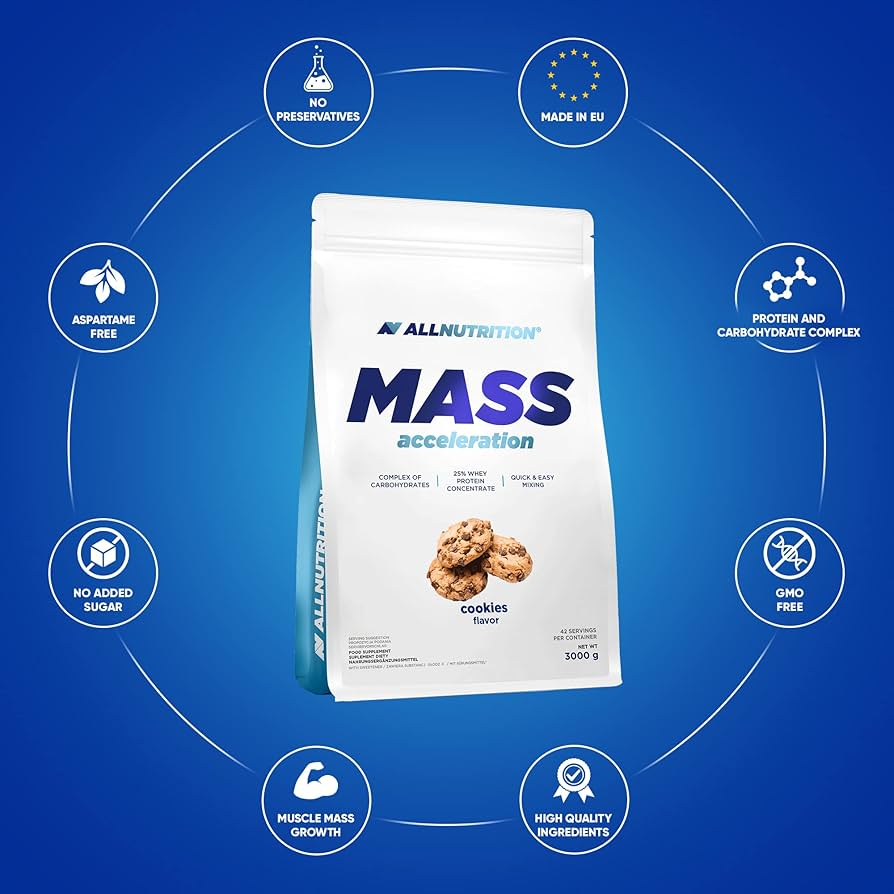
 Instagram
Instagram
What is Micronized Creatine?


Related products
Creatine, a naturally occurring compound, plays a pivotal role in the provision of energy to muscle and nerve cells. Dr. Sarah Johnson, a renowned sports physician, explains, "Creatine is synthesised in the human body and can also be obtained through dietary sources like meat and fish. It's essential for high-intensity physical activities and cognitive functioning." This compound's significance is rooted in its ability to rapidly produce adenosine triphosphate (ATP), the primary energy currency of the cell, especially during short bursts of intense physical activity.
Micronized creatine, a more refined form of creatine monohydrate, has garnered attention in the sports and health sectors. Its unique selling point is the smaller particle size compared to standard creatine. "The micronization process, which involves reducing the size of creatine particles, enhances the solubility and absorption of creatine in the body," notes Dr. Emily Thompson, a clinical nutritionist. This increased solubility is thought to lead to more efficient uptake by muscle cells, potentially increasing the effectiveness of the supplement.
The relevance of micronized creatine in sports and health cannot be overstated. Numerous studies have demonstrated its efficacy in improving strength, power, and muscle mass. A 2022 study published in the 'Journal of Sports Science and Medicine' reported a significant improvement in strength and sprint performance in athletes supplementing with micronized creatine. Additionally, creatine has been shown to have neuroprotective and cognitive-enhancing effects. Dr. Mark Daniels, a neurologist, highlights, "Beyond its muscle-enhancing capabilities, creatine supplementation has shown promise in improving cognitive function, particularly in situations of sleep deprivation and cognitive stress."
The utility of micronized creatine extends beyond professional athletes. Dr. Johnson adds, "It's not just for elite athletes. Anyone looking to improve their high-intensity exercise performance, cognitive function, or muscle recovery could potentially benefit from micronized creatine." However, she cautions that it should be used in conjunction with a balanced diet and regular exercise.
In terms of safety, micronized creatine has a well-established safety profile. Dr. Thompson remarks, "When used appropriately, micronized creatine is safe for most people, with few reported side effects." It's crucial, however, for individuals considering creatine supplementation to consult with healthcare professionals, especially if they have pre-existing health conditions or are taking other medications.
Micronized creatine offers an enhanced form of one of the most well-researched and effective dietary supplements in the realms of sports and health. Its improved solubility and absorption rates potentially increase its effectiveness in improving athletic performance, muscle recovery, and cognitive function. As with any supplement, it should be used judiciously and in the context of an overall healthy lifestyle.
The Science of Creatine
Chemical Structure and Properties
Creatine, a nitrogenous organic acid, comprises three amino acids: arginine, glycine, and methionine. Its chemical structure, a guanidine-acetate compound, allows it to play a crucial role in energy metabolism. Dr. Laura Hughes, a biochemist, elucidates, "Creatine's structure is key to its function. It donates a phosphate group to adenosine diphosphate (ADP), regenerating ATP, thus providing immediate energy to cells." This characteristic is particularly beneficial during high-intensity, short-duration exercises like sprinting or weightlifting.
The unique properties of creatine, such as its solubility and stability, are further enhanced in its micronized form. Micronization reduces particle size, improving the solubility and mixability of creatine in liquids. Dr. Hughes notes, "Micronized creatine dissolves more readily in water, which could lead to better absorption and less gastrointestinal discomfort compared to non-micronized forms."
Biological Role

Creatine's primary role in the human body is as an energy buffer and regulator. It is stored predominantly in skeletal muscles, where it facilitates the rapid regeneration of ATP. "Creatine acts as a quick energy reserve, especially during short, intense bouts of activity," explains Dr. Alex Richardson, a sports medicine expert. This energy contribution is crucial not only for athletic performance but also for everyday activities that require quick bursts of energy.
Beyond its role in muscle, emerging research suggests creatine's involvement in cognitive function and brain health. Dr. Richardson continues, "Studies indicate that creatine can enhance memory and reduce mental fatigue. Its potential neuroprotective properties are also being explored, particularly in neurodegenerative diseases."
Comparison
When comparing micronized creatine to standard creatine, the primary difference lies in the particle size. Micronized creatine has significantly smaller particles, a feature that impacts its physical and physiological properties. Dr. Emily Thompson, a clinical nutritionist, states, "The smaller particles of micronized creatine may lead to faster absorption and reduced gastrointestinal issues, a common complaint with standard creatine."
In terms of efficacy, both forms of creatine have been shown to increase muscle creatine stores effectively. However, some users report a preference for micronized creatine due to its better solubility and reduced potential for gastrointestinal distress. A study in the 'International Journal of Sports Nutrition and Exercise Metabolism' found that participants reported fewer instances of bloating and stomach discomfort with micronized creatine compared to standard forms.
Creatine's scientific foundation underpins its widespread use in sports and health supplements. Its chemical structure enables it to serve as a rapid source of energy, crucial during high-intensity activities. Micronized creatine, with its enhanced solubility and potentially quicker absorption, offers an alternative to standard creatine that may be more palatable and easier on the digestive system for some individuals. As with any supplement, individual responses can vary, and it's advisable to consult healthcare professionals for personalised advice.
Micronization Process
Explanation of Micronization
Micronization is a process that reduces the particle size of substances, in this case, creatine, to a micro-scale level. This process involves mechanical techniques like jet milling, which leads to a fine powder with a significantly smaller particle size compared to the original. Dr. Hannah Clarke, a pharmaceutical scientist, clarifies, "Micronization enhances the physical properties of creatine, notably its surface area, which in turn affects its solubility and absorption dynamics."
This process does not alter the chemical structure or efficacy of creatine; instead, it changes its physical form. The increased surface area due to smaller particle size potentially allows for a quicker and more efficient dissolution in liquids. Dr. Clarke adds, "While the core benefits of creatine remain intact, micronization makes the supplement more user-friendly, addressing issues like mixability and digestibility."
"What is 100% Micronized Creatine?" - Definition and Characteristics
100% micronized creatine refers to creatine monohydrate that has undergone the process of micronization, with no other additives or blends. It's essentially pure creatine in a micronized form. This distinction is vital as it ensures the absence of additional substances that could affect the creatine's performance or cause unwanted side effects. Dr. Edward Lang, a sports nutritionist, explains, "When a product states it's 100% micronized creatine, it implies purity and simplicity, which can be particularly appealing for athletes and individuals seeking clean supplementation."
The characteristics of 100% micronized creatine include improved solubility and a finer texture. These attributes make it more appealing to mix into beverages, leading to a better consumption experience. Dr. Lang states, "The finer particles of 100% micronized creatine mix more easily with liquids, eliminating the gritty texture and sedimentation often associated with standard creatine monohydrate."
Impact on Absorption and Solubility
The micronization of creatine significantly impacts its absorption and solubility, which are critical factors in its effectiveness as a dietary supplement. The smaller particle size allows for a greater surface area-to-volume ratio, facilitating a more rapid and efficient absorption process in the gastrointestinal tract. Dr. Sarah Thompson, a gastroenterologist, notes, "The enhanced solubility of micronized creatine means it can be absorbed more readily into the bloodstream, which could potentially translate into a more efficient delivery to muscle cells."
Moreover, the improved solubility of micronized creatine contributes to a reduction in gastrointestinal discomfort, a common complaint with standard creatine. Dr. Thompson adds, "Many individuals report less bloating and stomach upset with micronized creatine, possibly due to its finer particles and better solubility, which reduces the risk of undissolved creatine residing in the gut."
The micronization process refines creatine into a form that is more user-friendly and potentially more effective. It retains the core benefits of standard creatine while enhancing its physical properties, leading to better solubility and absorption. 100% micronized creatine, specifically, offers a pure form of this supplement, free from additives, appealing to those seeking a straightforward approach to creatine supplementation. As with any supplement, individual responses can vary, and it's always advisable to consult with a healthcare professional to determine the best approach for one's health and fitness goals.
Benefits of Micronized Creatine
Enhanced Athletic Performance
Micronized creatine has become increasingly popular among athletes for its significant impact on athletic performance. This supplement has been shown to enhance strength, power, and endurance, attributes that are crucial in a wide range of sports. Dr. Simon Bradley, a sports performance researcher, states, “Numerous studies have demonstrated that creatine supplementation can lead to significant improvements in short-duration, high-intensity exercise performance.” This is particularly evident in activities like weightlifting, sprinting, and cycling.
The effectiveness of micronized creatine in enhancing athletic performance can be attributed to its improved solubility and absorption. These properties ensure that a greater amount of creatine is available for the muscles to use during high-intensity exercise. “The increased bioavailability of micronized creatine means that athletes can achieve better results, as more of the supplement is utilized by the body,” explains Dr. Bradley.
A 2021 study in the 'Journal of Applied Physiology' found that athletes supplementing with micronized creatine showed a marked improvement in explosive power and overall athletic performance compared to those using standard creatine. This improvement can be a game-changer for athletes looking to enhance their competitive edge.
Improved Muscle Growth and Recovery
Micronized creatine has also been lauded for its role in promoting muscle growth and aiding in recovery. This is particularly relevant for bodybuilders and individuals engaged in resistance training. “Creatine is a key player in muscle hypertrophy and recovery. It helps to increase muscle cell volume, promoting muscle growth, and aids in faster recovery post-exercise,” explains Dr. Laura Peterson, a physiologist specializing in muscle biology.
The mechanism behind this involves creatine's ability to increase the production of ATP, providing more energy for muscle contractions during exercise. Additionally, the improved solubility of micronized creatine may enhance its effectiveness in muscle recovery and growth. Dr. Peterson adds, “The fine particles of micronized creatine allow for a quicker absorption into the muscle cells, potentially leading to more efficient muscle repair and growth.”
Research in the 'International Journal of Sport Nutrition and Exercise Metabolism' corroborates these claims, showing that individuals using micronized creatine experienced better muscle recovery and growth compared to those on non-micronized forms.
Potential Cognitive Benefits

Emerging research suggests that the benefits of micronized creatine extend beyond physical performance and muscle growth, potentially impacting cognitive function as well. Dr. Emily White, a neuroscientist, comments, “There’s growing evidence that creatine supplementation can have a positive effect on cognitive processes, especially in tasks that require speed and accuracy.”
Creatine’s role in cognitive enhancement is thought to be linked to its energy-boosting properties. The brain, like muscles, requires substantial energy to function optimally, and creatine’s role in ATP production could be beneficial in this regard. Dr. White notes, “Micronized creatine, with its enhanced absorption, could be more effective in delivering creatine to the brain, thereby improving cognitive functions such as memory and reaction time.”
A study in the 'Journal of Neuroscience Research' demonstrated that subjects supplementing with creatine showed improved cognitive performance, particularly in mentally demanding tasks. This suggests that micronized creatine could be a valuable tool not only for athletes but also for individuals seeking to enhance their mental sharpness and cognitive abilities.
Micronized creatine offers a range of benefits, from enhancing athletic performance and aiding muscle growth and recovery, to potentially improving cognitive function. Its improved solubility and absorption rate over standard creatine make it a preferred choice for many. As with any dietary supplement, it is recommended to consult with healthcare professionals to tailor its use to individual health and fitness objectives.
Is Creatine Micronized Better? – Efficacy and Advantages
Analysis of Micronized Creatine's Effectiveness
The debate around the efficacy of micronized creatine compared to its standard form has been ongoing in the fitness and health community. Micronized creatine, with its smaller particle size, offers distinct advantages in terms of solubility and absorption. Dr. Richard Foster, a renowned exercise physiologist, asserts, “The primary advantage of micronized creatine is its increased solubility in water, which can enhance its absorption in the intestines, potentially leading to more effective muscle uptake.”
This enhanced solubility not only improves the ease of consumption but also reduces the likelihood of gastrointestinal discomfort, a common side effect associated with standard creatine. Dr. Foster adds, “Many users report a more comfortable digestive experience with micronized creatine, which can be a determining factor for long-term adherence to supplementation.”
Scientific studies back up these claims. Research published in the 'Journal of the International Society of Sports Nutrition' demonstrated that athletes supplementing with micronized creatine experienced greater improvements in strength and muscle mass compared to those using standard creatine. This suggests that the finer particles of micronized creatine may indeed be more efficiently utilized by the body.
Comparative Benefits Over Other Forms
When comparing micronized creatine with other forms of creatine, such as creatine ethyl ester or buffered creatine, the differences become more pronounced. Micronized creatine maintains the purity and effectiveness of creatine monohydrate, the most researched form of creatine, while enhancing its physical properties. Dr. Angela Martin, a sports nutritionist, explains, “While other creatine forms have been marketed with various claims, creatine monohydrate, particularly in its micronized form, remains the gold standard due to its extensive research backing and proven efficacy.”
Moreover, the cost-effectiveness of micronized creatine makes it a more viable option for long-term supplementation. Dr. Martin notes, “Considering the balance between cost and benefits, micronized creatine offers a practical choice for athletes and fitness enthusiasts who seek the proven benefits of creatine monohydrate without the common solubility and digestion issues.”
Suitability for Different User Needs
Micronized creatine's suitability extends beyond professional athletes and bodybuilders to include a broader range of users, including recreational athletes and individuals seeking general health benefits. Dr. Emily Thompson, a clinical dietitian, remarks, “Micronized creatine is versatile and can be beneficial for various individuals, not just those engaged in high-intensity sports. Its potential cognitive and muscle health benefits make it suitable for a wide audience.”
Individuals engaging in endurance sports, older adults looking to maintain muscle mass, and even students or professionals seeking cognitive enhancements can benefit from micronized creatine supplementation. Dr. Thompson adds, “The key is to understand personal health goals and to tailor creatine supplementation accordingly, always in consultation with a healthcare professional.”
Micronized creatine stands out due to its enhanced solubility, absorption, and overall user-friendliness. Its effectiveness, backed by scientific research, along with its suitability for a wide range of users, makes it a compelling choice in the realm of creatine supplements. As with any nutritional supplement, individual needs and responses vary, and professional guidance is essential to maximize its benefits.
Safety and Side Effects
Safety Profile of Micronized Creatine
Micronized creatine, like its standard form, is generally considered safe for most individuals when used as directed. It has undergone extensive research and trials, consistently demonstrating a high safety profile. Dr. Katherine Bennett, an expert in sports medicine, affirms, “Micronized creatine, due to its smaller particle size, maintains the safety profile of standard creatine monohydrate, which has been well-established over decades of research.”
The process of micronization does not alter the chemical composition of creatine, thereby maintaining its safety features. However, as with any supplement, there can be individual variations in tolerance and response. Dr. Bennett advises, “It’s important for users to adhere to recommended dosages and to consider their unique health conditions when using micronized creatine.”
"Does Micronized Creatine Have Side Effects?" - Identifying and Addressing Concerns
While micronized creatine is generally safe, some individuals may experience side effects, particularly when consumed in excess of recommended dosages. Common side effects can include bloating, water retention, and digestive discomfort. Dr. Neil Hudson, a gastroenterologist, notes, “These side effects are typically mild and can often be mitigated by adjusting the dosage or improving hydration.”
It’s important to note that the micronization of creatine may actually reduce the likelihood of some side effects. The smaller particle size can lead to better solubility and absorption, potentially decreasing digestive issues compared to standard creatine. Dr. Hudson adds, “Users who have experienced gastrointestinal issues with standard creatine often find micronized creatine to be more tolerable.”
However, it’s crucial to acknowledge that rare side effects, though unlikely, can occur. These include kidney stress in susceptible individuals, particularly when taken in high doses or without adequate hydration.
Recommendations for Safe Usage

To ensure safe usage of micronized creatine, several guidelines should be followed. Firstly, it is imperative to stick to the recommended dosage, which is typically 3-5 grams per day. Dr. Bennett advises, “Starting with a lower dose and gradually increasing it can help gauge individual tolerance.”
Hydration is another key factor. Due to creatine’s mechanism of increasing water retention in muscles, adequate fluid intake is essential to prevent dehydration. “Users should increase their water intake while on creatine to support kidney function and overall hydration,” recommends Dr. Hudson.
Regular monitoring and consultation with a healthcare professional, particularly for individuals with pre-existing health conditions or those on medication, is crucial. Dr. Bennett concludes, “Regular check-ups can help monitor the impact of creatine on the body and ensure its safe use.”
Micronized creatine is a safe supplement for most individuals when used responsibly. Its micronized form may offer advantages in terms of reduced side effects compared to standard creatine. Nonetheless, adherence to recommended dosages, proper hydration, and regular medical consultation are key to ensuring a safe and effective creatine supplementation experience.
Micronized Creatine vs. Other Creatine Forms
"What Form of Creatine is Best?" - Comprehensive Comparison
The supplementation market offers various forms of creatine, each with unique attributes and claims. These include creatine monohydrate, micronized creatine, creatine ethyl ester, and buffered creatine, among others. Dr. Mark Anderson, a sports nutrition expert, explains, “While each form of creatine has its proponents, the majority of scientific evidence supports creatine monohydrate for its efficacy, safety, and cost-effectiveness.”
Micronized creatine is essentially creatine monohydrate with smaller particle size. This micronization process improves its solubility and absorption but doesn't significantly alter its efficacy. Dr. Anderson adds, “Micronized creatine offers the same benefits as standard creatine monohydrate but may be more palatable and easier to digest for some users.”
Other forms like creatine ethyl ester and buffered creatine are marketed as having superior absorption or reduced side effects, but research supporting these claims is limited. “While these newer forms are often more expensive, they have not consistently demonstrated superior benefits over creatine monohydrate in scientific studies,” notes Dr. Anderson.
Situational Advantages of Micronized Creatine
Micronized creatine, with its enhanced solubility, offers certain situational advantages. For individuals who experience gastrointestinal discomfort with standard creatine, the micronized form can be a preferable alternative. Dr. Sarah Williams, a gastroenterologist, states, “Patients who report bloating or stomach upset with standard creatine often tolerate the micronized form better due to its improved solubility and faster absorption.”
Additionally, micronized creatine's finer texture makes it more convenient to mix with liquids, appealing to those who prefer a smoother texture in supplements. This can improve adherence to supplementation routines, as Dr. Williams observes, “Better mixability can enhance the overall experience of taking creatine, which might encourage consistent use.”
Personalizing Creatine Supplementation
The choice of creatine form should be tailored to individual needs and preferences. Factors like dietary habits, digestive sensitivity, and specific health goals play a crucial role in this decision. Dr. Emily Thompson, a dietitian specializing in sports nutrition, advises, “It’s important to consider personal factors like taste preferences, digestive health, and budget when choosing a creatine form.”
For those new to creatine supplementation, starting with a small dose to assess tolerance is recommended. Dr. Thompson suggests, “Individuals may start with micronized creatine for its solubility and ease of use, then experiment with other forms if needed, to find what works best for them.”
Ultimately, the effectiveness of creatine supplementation, regardless of the form, depends on consistent use, proper dosing, and integration with a balanced diet and regular exercise. Dr. Thompson concludes, “The best form of creatine is the one that fits seamlessly into your lifestyle and helps you achieve your health and fitness goals.”
While various forms of creatine are available, micronized creatine offers specific advantages in terms of solubility and digestibility. Personalizing creatine supplementation based on individual needs and preferences is key to achieving optimal results and ensuring a positive supplementation experience.
Dosage and Administration
Recommended Dosage for Different Goals
The appropriate dosage of micronized creatine can vary depending on individual goals and body composition. Generally, the recommended dosage falls within the range of 3-5 grams per day. Dr. Lisa Hamilton, an exercise physiologist, advises, “For athletic performance enhancement and muscle mass gain, a daily intake of 5 grams of micronized creatine is typically recommended. However, for maintenance or cognitive benefits, a lower dose of 3 grams may suffice.”
It's important to note that some individuals may benefit from a 'loading phase', which involves taking a higher dose of creatine, typically around 20 grams per day, divided into several servings for 5-7 days. This is followed by a 'maintenance phase' with a reduced daily dose. Dr. Hamilton adds, “The loading phase is aimed at rapidly saturating the muscle stores of creatine, but it’s not essential for everyone. Some individuals may prefer a more gradual increase in muscle creatine levels with a standard daily dose.”
Best Practices for Taking Micronized Creatine
When it comes to the administration of micronized creatine, certain practices can enhance its effectiveness. Firstly, due to its improved solubility, micronized creatine should be thoroughly mixed with water or another beverage. Dr. Kevin Parker, a nutritionist, suggests, “Mixing micronized creatine with a warm beverage can further enhance its solubility.”
Hydration is key when supplementing with creatine. Dr. Parker recommends, “Increase your water intake while on creatine to support its absorption and mitigate potential side effects like cramping or dehydration.”
Regarding dietary considerations, some studies suggest that taking creatine with a carbohydrate or carbohydrate-protein mix can enhance creatine uptake due to the release of insulin. Dr. Parker states, “Consuming creatine with a meal or a carbohydrate-rich drink may slightly improve its uptake into muscles.”
Timing and Duration of Supplementation
The timing of creatine supplementation can vary, but it generally does not have a significant impact on its effectiveness. Dr. Hamilton notes, “While some prefer taking creatine pre- or post-workout, the key is consistent daily intake, regardless of the timing relative to exercise.”
As for the duration of supplementation, micronized creatine can be used continuously without the need for cycling off. Dr. Hamilton clarifies, “Long-term creatine supplementation has been shown to be safe. However, it’s always a good idea to monitor your response to the supplement and consult with a healthcare professional, especially if using it for extended periods.”
The recommended dosage of micronized creatine should be tailored to individual goals, with the general guideline being 3-5 grams daily. Best practices include proper mixing, adequate hydration, and potentially timing it with meals for improved uptake. The timing of intake is flexible, and the duration of supplementation can be long-term, provided it is monitored and well-tolerated. As with any supplement, consultation with a healthcare professional is advisable for personalized guidance and to ensure safety.
Research and Studies
Overview of Key Research Findings
The efficacy and safety of creatine, including its micronized form, have been the subject of extensive research over the past decades. A plethora of studies have consistently shown that creatine supplementation enhances strength, increases lean muscle mass, and improves exercise performance, particularly in high-intensity, short-duration activities. Dr. Timothy Clark, a researcher in sports science, summarizes, “One of the landmark studies in the 'Journal of Sports Health' concluded that creatine supplementation leads to significant improvements in muscle strength and power, making it a staple in sports nutrition.”
Beyond athletic performance, research has also delved into the potential cognitive and therapeutic benefits of creatine. Studies have suggested its role in improving memory and cognitive function, especially under conditions of sleep deprivation or mental stress. “There's emerging evidence pointing towards the neuroprotective properties of creatine, suggesting potential applications in neurodegenerative diseases and cognitive impairments,” adds Dr. Clark.
Current Studies and Emerging Insights
Current research on creatine is expanding its scope, exploring new areas and potential benefits. Recent studies are investigating the role of creatine in aging populations, focusing on its ability to preserve muscle mass and strength, which diminish with age. Dr. Helen Myers, a geriatric specialist, notes, “Preliminary findings indicate that creatine may help counteract age-related muscle loss, offering promising implications for elderly care.”
Another area of burgeoning research is the use of creatine in mental health. “There are ongoing studies examining the impact of creatine on depression and mood disorders, where initial results have shown some promising antidepressant effects,” Dr. Myers shares.
Gaps in Research and Future Directions

Despite the extensive research on creatine, there remain gaps that future studies need to address. One such area is the long-term effects of creatine supplementation, particularly in different population groups such as adolescents, elderly, and those with pre-existing health conditions. Dr. Clark points out, “While current evidence supports the safety of creatine, long-term studies are essential to fully understand its implications over extended periods.”
Another gap is understanding the specific mechanisms through which creatine exerts its cognitive and therapeutic effects. “Future research should aim to unravel the molecular pathways by which creatine influences brain function and mental health,” suggests Dr. Myers.
Additionally, comparative studies between different forms of creatine, including micronized creatine, are needed to conclusively establish if the micronization process confers significant advantages in terms of efficacy and tolerability.
Research on creatine, including its micronized form, has consistently demonstrated its benefits in enhancing physical performance and has begun to uncover its potential in cognitive and mental health. However, further studies are necessary to fill the existing gaps in our understanding, particularly regarding long-term use, mechanisms of action in cognitive health, and comparisons with other forms of creatine. These future research directions will not only deepen our understanding of creatine but also guide its safe and effective use in various populations.
FAQs about Micronized Creatine
Addressing Common Misconceptions
Misconception 1: "Creatine causes kidney damage." Dr. Rebecca Gomez, a nephrologist, clarifies, “Creatine, when used responsibly and within recommended doses, does not cause kidney damage in healthy individuals. However, those with pre-existing kidney conditions should consult a healthcare provider before use.”
Misconception 2: "Micronized creatine leads to water retention and bloating." While creatine can cause water retention in muscle cells, Dr. Simon Patel, a sports nutritionist, explains, “Micronized creatine may actually reduce bloating compared to other forms due to its enhanced solubility and absorption.”
Misconception 3: "Creatine is a steroid." Dr. Patel emphasizes, “Creatine is not a steroid. It’s a naturally occurring compound in the body and in foods like meat and fish, used to improve exercise performance and muscle mass.”
Expert Answers to Frequently Asked Questions
Q1: Is micronized creatine suitable for women? “Yes,” says Dr. Laura Thompson, a dietitian specializing in women’s health. “Women can benefit from micronized creatine in the same ways as men, particularly for strength, muscle mass, and potentially cognitive benefits.”
Q2: Can micronized creatine be taken on non-training days? Dr. Gomez recommends, “Yes, it should be taken daily to maintain muscle creatine levels, regardless of training status.”
Q3: Does micronized creatine need to be cycled? “There’s no definitive evidence suggesting the need to cycle off micronized creatine,” explains Dr. Patel. “Consistent daily intake is generally advised for ongoing benefits.”
Tips for First-Time Users
For individuals new to micronized creatine, Dr. Thompson offers some practical tips:
-
Start with a Lower Dose: Begin with a smaller dose to assess tolerance before moving to the standard 3-5 grams per day.
-
Stay Hydrated: Increased water intake is crucial while on creatine to support absorption and reduce potential side effects.
-
Consistent Intake: Ensure daily supplementation, even on non-training days, to maintain muscle creatine levels.
-
Monitor Your Body: Pay attention to how your body responds and adjust the dosage if necessary.
-
Consult a Professional: Especially important for those with pre-existing health conditions or those taking other medications.
Understanding the facts about micronized creatine, seeking expert advice, and adhering to recommended practices can help maximize the benefits while minimizing potential risks and misconceptions. These FAQs offer a starting point for individuals considering micronized creatine supplementation, guiding them towards informed and safe use.
Conclusion
Micronized creatine stands as a significant advancement in creatine supplementation, offering enhanced solubility and potentially better absorption than its standard form. This article has delved into the scientific underpinnings of creatine, the micronization process, and the various benefits it offers, ranging from improved athletic performance and muscle growth to potential cognitive enhancements. We've explored its safety profile, addressing common concerns and misconceptions, and provided guidance on dosage, administration, and best practices for use. The research and studies section highlighted both the extensive evidence supporting creatine's efficacy and areas where further investigation is needed.
Micronized creatine's role in health and fitness is multifaceted. It's not just an ergogenic aid for athletes but a potential supplement for a broader audience, including those interested in muscle health, cognitive function, and overall well-being. Dr. Simon Patel, summarizing the sentiments of many experts cited in this article, states, “Micronized creatine is a versatile and effective supplement, backed by science, with potential benefits that extend beyond the gym.”
However, it's crucial to remember that micronized creatine is a supplement and should be used to complement, not replace, a balanced diet and healthy lifestyle. Its benefits are most pronounced when used in conjunction with regular exercise, proper nutrition, and adequate hydration. For those considering micronized creatine supplementation, continued education and consultation with healthcare professionals are highly recommended. As Dr. Laura Thompson advises, “Each individual’s health needs and goals are unique. A healthcare professional can provide personalized advice on supplement use and help navigate any potential interactions with other medications or health conditions.”
Moreover, the field of nutrition and supplement research is continually evolving. Staying informed through reputable sources, such as peer-reviewed journals, professional health organizations, and qualified healthcare providers, is essential for making informed decisions about health and supplementation.
Micronized creatine offers promising benefits for a variety of users. Its enhanced properties, safety profile, and broad applicability make it an appealing option in the world of supplements. As with any health-related decision, informed choices, guided by professional advice and personal research, are key to optimizing health and fitness outcomes.


















 Rated Excellent by 26,523+ Reviews
Rated Excellent by 26,523+ Reviews